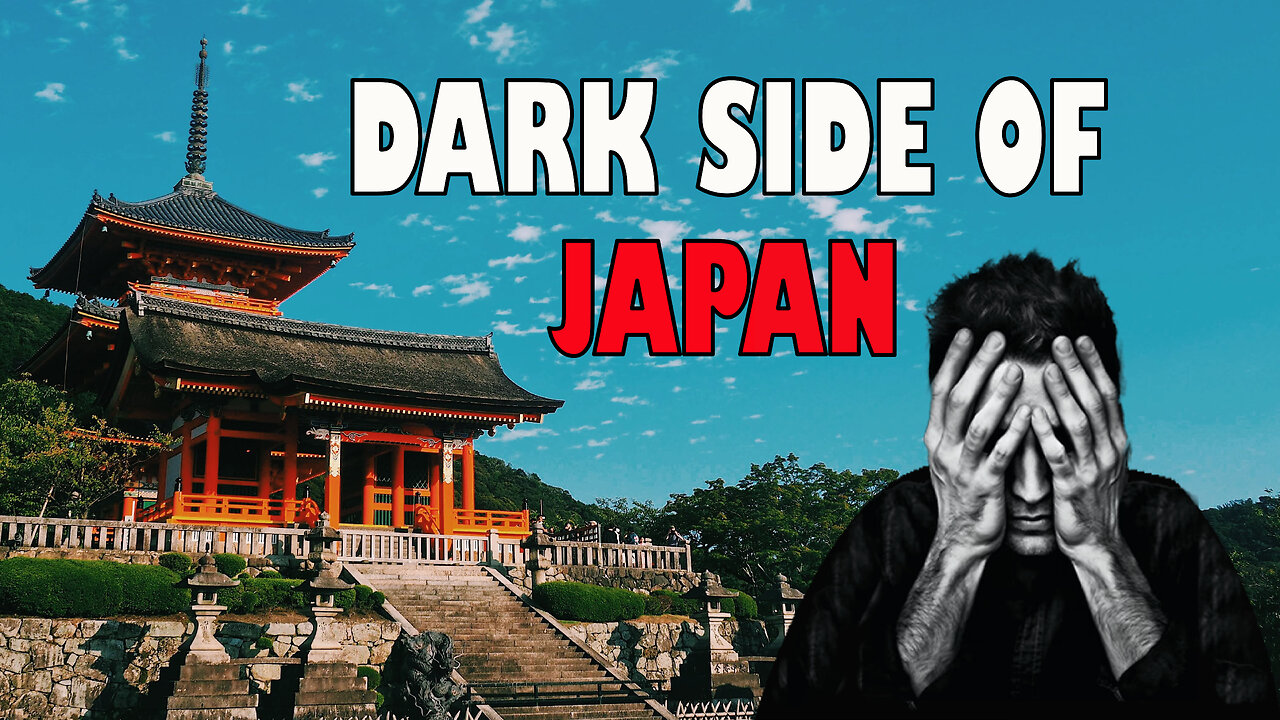Premium Only Content

The Dark Side of Japan
What are the dark sides of living in Japan? Japan is often portrayed as a paradise, but there are some darker aspects of living in the country that many people don't know about. From its xenophobic culture to the lack of mental health awareness, Japan has some unique issues that can make life difficult for those who live there. This article will discuss these dark sides and how they impact those who call Japan their home. We'll explore topics such as the difficulty of finding long-term employment, discrimination against foreign nationals, and the stigma surrounding mental illness in Japanese society. By understanding these realities faced by many people living in Japan today, we can gain insight into an important part of this fascinating country's history and culture.
1. The Culture Is Entirely Different
Living in Japan is a unique experience, as the culture is entirely different from what most Westerners are used to. Japanese people tend to be more reserved and polite than those in western countries, and their customs can take some getting used to. For instance, bowing is an important gesture of respect that’s seen frequently throughout Japan. Additionally, it’s not uncommon for conversations between strangers to remain relatively formal until they become comfortable with one another. Furthermore, there are certain behaviors which are considered taboo in Japan such as being loud or talking on your phone while riding public transportation. It can also be difficult to find places open late at night due to the fact that many businesses close early in order to adhere to traditional customs. While living in Japan can be a rewarding experience, it’s important to be aware of the cultural differences and respect the local customs.
2. High rent
One of the dark sides of living in Japan is the high rent for tiny flats. With limited land available and high demand for housing in popular areas, the cost of living in a metropolitan area like Tokyo can be incredibly expensive. Even small apartments can command high rent prices, leaving little disposable income for other things. Space is a precious commodity in Japan, and many apartments are designed to be functional rather than spacious, leading to cramped living conditions for some. Living in a small apartment may be tolerable for some people, but high rents can add to the stress of daily life. Renting a larger apartment can be an option, but it comes with an even higher price tag. While living in Japan can offer many advantages, the high cost of housing is an issue that potential residents should be aware of before making the move.
3. Smoking is allowed in public spaces
Smoking is allowed in public spaces in Japan. This has a negative side to it, as those who do not smoke are exposed to the dangers of second-hand smoking. For example, when walking down a busy street or sitting at an outdoor café, it's common to be surrounded by people smoking cigarettes and other tobacco products. The air quality can suffer from the influx of cigarette smoke, making the environment unhealthy for non-smokers. Additionally, many restaurants and cafes have designated smoking areas that can be difficult for non-smokers to avoid if they want to enjoy their meal or beverage without having someone puffing away next door. There have been attempts made by some cities like Tokyo and Osaka to ban smoking indoors but these efforts have mostly fallen flat due to lack of enforcement or public outcry against such regulations. As long as this remains unchanged, living in Japan will be synonymous with being exposed to the dangers of second-hand smoke.
4. The Suicide Rate is High
Japan’s unusually high suicide rates paint a very dark picture about the place. According to the World Health Organization, Japan has one of the highest suicide rates among developed countries.
-
 LIVE
LIVE
SpartakusLIVE
4 hours agoThe Most INSANE Snipes EVER || Solo to Duos w/ StevieT - PUBG or Mordor Later?!
346 watching -
 LIVE
LIVE
Flyover Conservatives
12 hours agoThe Truth About Israel & End Times Nobody Wants to Say - Phil Hotsenpiller | FOC Show
392 watching -
 LIVE
LIVE
GritsGG
1 hour agoSweaty Ranked Grind! Most Wins in WORLD! 3600+!
39 watching -
![[ Tekken Tuesday ] TNS Tekken Tournament Watch Party](https://1a-1791.com/video/fww1/5b/s8/1/4/a/C/g/4aCgz.0kob-small--Tekken-Tuesday-TNS-Watch-P.jpg) LIVE
LIVE
CHiLi XDD
1 hour ago[ Tekken Tuesday ] TNS Tekken Tournament Watch Party
83 watching -
 1:53:04
1:53:04
Glenn Greenwald
5 hours agoIsrael Bombs Qatar and Trump Reacts; The Hoax to Blame Russia for Jamming EU President's Plane GPS; Mamdani Soars in Polls as he Tries to Moderate on Israel | SYSTEM UPDATE #511
86.2K44 -
 2:47:57
2:47:57
Barry Cunningham
4 hours agoLIVE: PRESIDENT TRUMP ANNOUNCEMENT | IRYNA ZARUTSKA DESERVES IMMEDIATE JUSTICE! NO WAITING!
42.6K52 -
 LIVE
LIVE
cosmicvandenim
12 hours agoCOSMIC VAN DENIM | Precision Tuning | WARZONE
119 watching -
 LIVE
LIVE
Anthony Rogers
1 day agoEpisode 382 - Crystal Balls & Comedy Calls
36 watching -
 LIVE
LIVE
LFA TV
15 hours agoLFA TV ALL DAY STREAM - TUESDAY 9/9/25
651 watching -
 LIVE
LIVE
BubbaSZN
2 hours ago🔴 LIVE - 1 WEEK UNTIL RELEASE (SKATE.)
14 watching